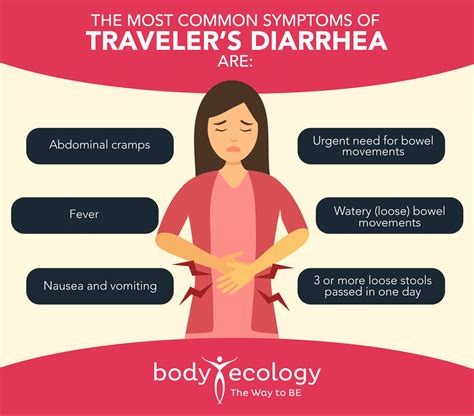Traveling
Travel Diarrhea Prevention

Introduction to Travel Diarrhea Prevention
Traveling to new and exciting destinations can be a thrilling experience, but it can also come with some not-so-pleasant surprises, such as traveler’s diarrhea. This common condition is caused by consuming contaminated food or water, and it can quickly ruin a trip. However, with some knowledge and preparation, travelers can significantly reduce their risk of getting sick. In this article, we will explore the ways to prevent travel diarrhea and provide valuable tips for a healthy and enjoyable journey.
Understanding Travel Diarrhea
Traveler’s diarrhea is a type of gastrointestinal infection that is usually caused by bacteria, viruses, or parasites found in contaminated food or water. The most common culprits are E. coli, Salmonella, and Campylobacter. These microorganisms can be present in undercooked or raw meat, unwashed fruits and vegetables, and untreated water. When a traveler consumes contaminated food or water, the microorganisms can cause an infection, leading to symptoms such as diarrhea, abdominal cramps, and vomiting.
Risk Factors for Travel Diarrhea
Some travelers are more likely to get sick than others, depending on various factors. These include: * Destination: Traveling to developing countries or areas with poor sanitation and hygiene increases the risk of getting sick. * Food and water habits: Eating undercooked or raw meat, unwashed fruits and vegetables, and drinking untreated water can increase the risk of infection. * Age and health status: Older adults, young children, and people with weakened immune systems are more susceptible to illness. * Type of travel: Backpacking, camping, or traveling to remote areas can increase the risk of exposure to contaminated food and water.
Prevention Strategies
While it’s impossible to completely eliminate the risk of getting sick, there are several strategies that can help prevent travel diarrhea: * Choose safe food and water: Stick to cooked foods, avoid raw or undercooked meat, and drink bottled or filtered water. * Practice good hygiene: Wash your hands frequently with soap and water, especially before eating and after using the bathroom. * Avoid contaminated food and water: Avoid eating from street vendors, and don’t drink tap water or consume ice made from tap water. * Get vaccinated: Certain vaccinations, such as hepatitis A and typhoid fever, can help protect against travel-related illnesses.
Medications and Supplements
In addition to prevention strategies, there are several medications and supplements that can help reduce the risk of travel diarrhea: * Antibiotics: In some cases, antibiotics may be prescribed to prevent or treat travel diarrhea. * Probiotics: These beneficial bacteria can help maintain a healthy gut and reduce the risk of infection. * Anti-diarrheal medications: Over-the-counter medications such as loperamide can help manage symptoms, but they should only be used under the guidance of a healthcare professional.
What to Do If You Get Sick
Despite taking precautions, it’s still possible to get sick while traveling. If you experience symptoms of travel diarrhea, such as diarrhea, abdominal cramps, or vomiting, it’s essential to: * Stay hydrated: Drink plenty of fluids, such as water, clear broth, or electrolyte-rich beverages like coconut water or sports drinks. * Rest: Get plenty of rest to help your body recover. * Seek medical attention: If your symptoms worsen or you experience bloody stools, severe abdominal pain, or vomiting that lasts more than 2 days, seek medical attention.
🚨 Note: If you have a weakened immune system or are taking immunosuppressive medications, you should consult with your healthcare provider before traveling to high-risk areas.
Conclusion and Final Thoughts
Travel diarrhea can be a significant concern for travelers, but with the right knowledge and precautions, the risk of getting sick can be significantly reduced. By understanding the causes and risk factors, taking preventive measures, and knowing what to do if you get sick, you can enjoy a healthy and enjoyable journey. Remember to always prioritize your health and safety while traveling, and don’t hesitate to seek medical attention if you experience any symptoms of illness.
What are the most common causes of travel diarrhea?
+
The most common causes of travel diarrhea are bacteria, viruses, and parasites found in contaminated food or water.
How can I prevent travel diarrhea?
+
To prevent travel diarrhea, choose safe food and water, practice good hygiene, avoid contaminated food and water, and get vaccinated against certain illnesses.
What should I do if I get sick while traveling?
+
If you get sick while traveling, stay hydrated, rest, and seek medical attention if your symptoms worsen or you experience severe symptoms such as bloody stools or vomiting that lasts more than 2 days.